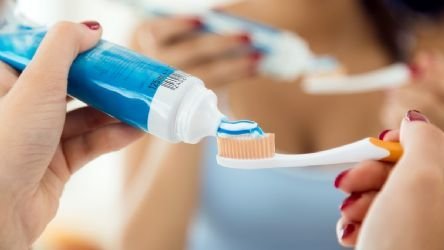Cavities, also known as dental caries or tooth decay, are one of the most common dental issues faced by people of all ages. Preventing cavities is essential for maintaining good oral health and avoiding the discomfort and expenses associated with dental treatments. Many people wonder whether toothpaste, a widely used oral care product, can genuinely prevent cavities. In this article, we will explore the role of toothpaste in cavity prevention, its ingredients, and the importance of a comprehensive oral hygiene routine.
Understanding Cavities
To understand how toothpaste can help prevent cavities, it’s crucial to know how cavities develop. Cavities are caused by the gradual breakdown of tooth enamel, the protective outer layer of the teeth, due to the acid produced by oral bacteria. These bacteria thrive on the sugars and carbohydrates in the foods we eat, producing acids that weaken the enamel and create holes in the teeth, leading to cavities.
The Role of Toothpaste in Cavity Prevention
Toothpaste plays a significant role in cavity prevention as part of a comprehensive oral care routine. The key benefits of toothpaste in this context are:
- Fluoride: The most crucial ingredient in toothpaste for cavity prevention is fluoride. Fluoride is a natural mineral that strengthens tooth enamel and makes it more resistant to acid attacks from oral bacteria. It can even reverse early-stage cavities by remineralizing weakened enamel. Regular use of fluoride toothpaste, along with drinking fluoridated water, helps protect teeth from decay.
- Cleaning and Polishing: Toothpaste contains mild abrasives that aid in the mechanical cleaning and polishing of teeth. This action helps remove plaque, food particles, and surface stains from the teeth, reducing the buildup of bacteria and acid-producing substances.
- Fresh Breath and Oral Health: Many toothpaste varieties include antibacterial agents and breath fresheners that can help control oral bacteria and maintain a fresh mouthfeel.
- Encouraging Regular Brushing: Using toothpaste with a pleasant flavor and texture can make the brushing experience more enjoyable, encouraging people to brush regularly and for the recommended duration.
The Importance of a Comprehensive Oral Hygiene Routine
While toothpaste is an essential part of oral care, it is not a standalone solution for preventing cavities. A comprehensive oral hygiene routine is crucial for cavity prevention and overall dental health. This routine should include the following:
- Brushing: Brush your teeth at least twice a day, preferably after meals, using fluoride toothpaste and a soft-bristled toothbrush. Proper brushing technique, including brushing all surfaces of the teeth and the gumline, is essential for effective plaque removal.
- Flossing: Flossing at least once a day helps remove plaque and food particles from between teeth and along the gumline, where toothbrushes may not reach effectively.
- Dental Checkups: Regular visits to the dentist are vital for professional cleanings, early detection of dental issues, and personalized guidance on oral care.
- Balanced Diet: Limiting the consumption of sugary and acidic foods and drinks helps reduce the food source for cavity-causing bacteria. A balanced diet rich in essential nutrients supports overall oral health.
Conclusion
Toothpaste, especially fluoride toothpaste, is a valuable tool in preventing cavities when used as part of a comprehensive oral hygiene routine. The fluoride in toothpaste helps strengthen tooth enamel and protect against acid attacks, while its cleaning and antibacterial properties contribute to a healthier mouth. However, toothpaste alone cannot prevent cavities. Regular and proper brushing, flossing, dental checkups, and a balanced diet are all essential components of a proactive approach to cavity prevention and maintaining optimal oral health. By combining all these elements, individuals can significantly reduce their risk of developing cavities and enjoy a brighter, healthier smile for years to come.



